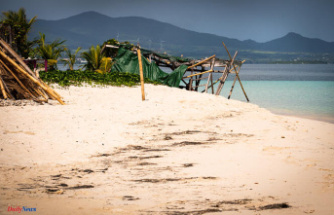Twenty-two countries, including the United States, France and the United Arab Emirates, called on Saturday, December 2, in a joint declaration at the 28th Conference of the Parties (COP28), to triple nuclear energy capacities in the world by 2050, compared to 2020. Their objective is to reduce dependence on coal and gas, the major challenge of this COP.
The announcement was made by John Kerry, the US climate envoy, in Dubai, along with several leaders, including French President Emmanuel Macron and Belgian Prime Minister Alexander De Croo. Among the signatories are still Bulgaria, Canada, Finland, Ghana, Hungary, Japan, South Korea, Moldova, Mongolia, Morocco, the Netherlands, Poland, Romania, Slovakia, Slovenia, Sweden, Ukraine, Czech Republic and the United Kingdom.
On the other hand, China and Russia, the main builders of nuclear power plants in the world today, are not among the signatories.
“The declaration recognizes the key role of nuclear energy in achieving carbon neutrality by 2050 and keeping the goal of [limiting warming to] 1.5°C within reach,” is written in the text. “We know from science, the reality of the facts and the evidence that we cannot achieve carbon neutrality by 2050 without nuclear power,” said John Kerry during the event in Dubai.
A call to international financial institutions
Romanian President Klaus Iohannis explained that nuclear power represented for his country “a stable source of energy contributing to energy security and decarbonization”.
The signatory countries also call on shareholders of international financial institutions, such as the World Bank, to include nuclear power in their financing.
“There are statutory provisions, sometimes in certain international credit institutions, which exclude nuclear power. I think that’s completely obsolete,” the Director General of the International Atomic Energy Agency, Rafael Grossi, declared earlier to Agence France-Presse.
Its promoters see nuclear energy, which is modular and emits almost no greenhouse gases, as an incomparable means of producing virtuous and abundant electricity. Some environmental defenders, on the other hand, underline the risks of accidents, the question of waste in the very long term or even the high costs of nuclear power.












